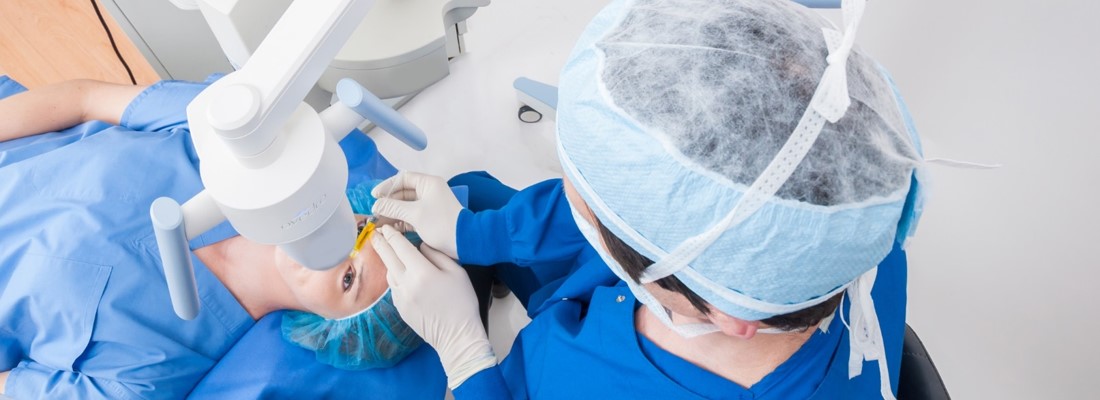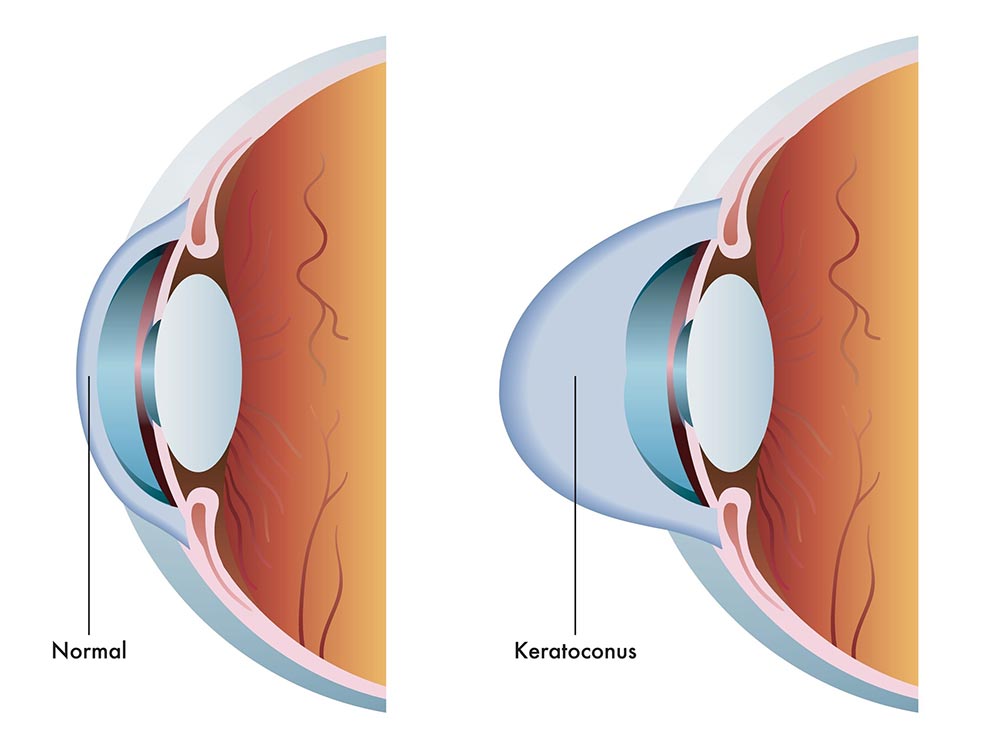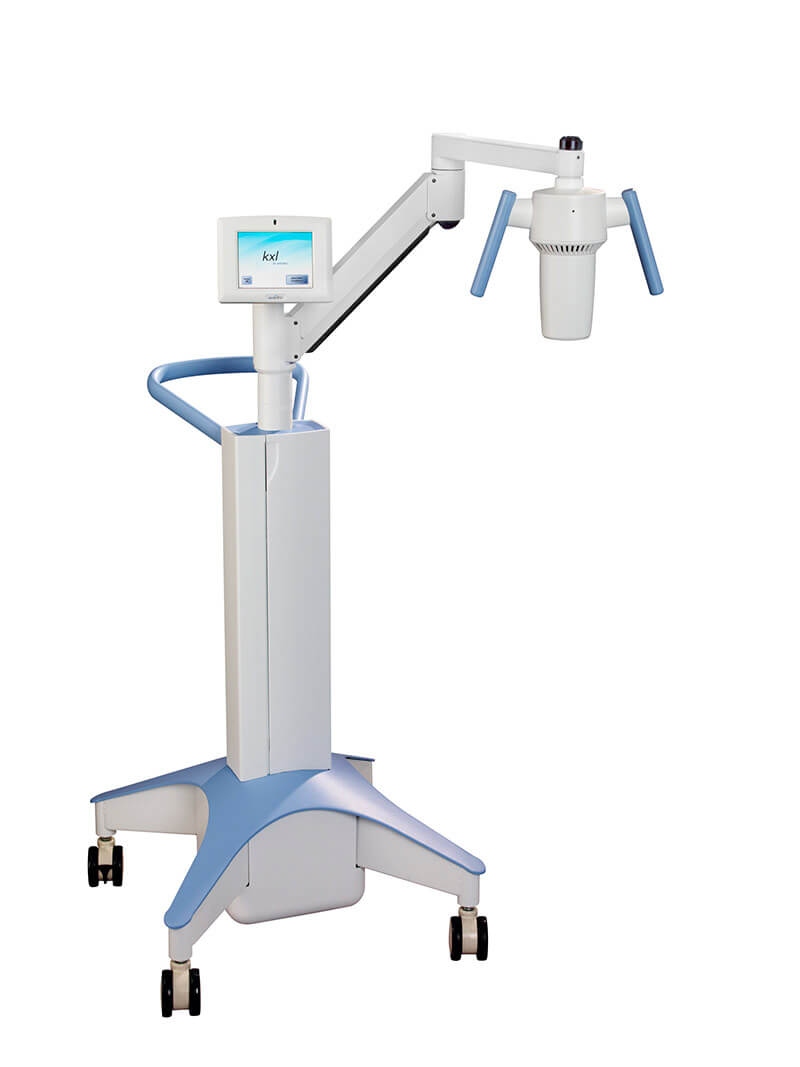


Keratoconus is the thinning of the cornea—the clear dome-shaped outer surface of your eye. Eventually, the cornea bulges outward into a cone shape causing blurred vision, sensitivity to light and difficulty seeing at night. Most commonly impacting individuals between the ages of 10 to 25, the chance of developing it increases if it runs in the family. Keratoconus can worsen over time so early detection is key.
Different treatment options are available, depending on the severity. Mild to moderate Keratoconus may be treated with eyeglasses or specialty contact lenses. Another treatment is called Corneal Cross-linking, which uses riboflavin and UV light to strengthen the cornea.

Atlantic Eye Institute is the only practice in Jacksonville to offer iLink™ corneal cross-linking, the only FDA-approved corneal cross-linking procedure that slows or halts progressive keratoconus.
Corneal cross-linking is a medical procedure that combines the use of ultra-violet (UV) light and riboflavin (vitamin B2) eye drops. It works by increasing collagen crosslinks which are the natural “anchors” within the cornea. These anchors are responsible for preventing the cornea from bulging out and becoming steep and irregular.
This treatment aims to arrest the progression of Keratoconus, and thereby prevent further deterioration in vision and the need for corneal transplantation. Glasses or contact lenses will still be needed following the cross-linking treatment (although a change in the prescription may be required).
People who are considering laser vision correction procedures such as LASIK also might be pre-treated with corneal cross-linking to strengthen the eye’s surface before undergoing an excimer laser ablation that reshapes the cornea.